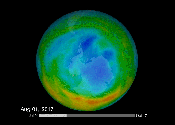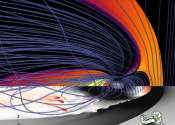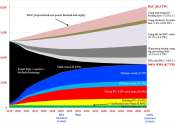Gazing into crystal balls to advance understanding of crystal formation
Researchers at The University of Tokyo Institute of Industrial Science conducted simulations considering and neglecting hydrodynamic interactions to determine ...
Higher carbon dioxide levels could muddle our thinking
A team of researchers from the University of Colorado Boulder, the Colorado School of Public Health and the University of Pennsylvania has found evidence ...
Beleaguered Boeing's Starliner returns early from failed mission (Update)
Boeing's Starliner spacecraft won't achieve its mission objective of docking with the International Space Station, NASA said Friday, dealing a blow to ...
ANOTHER BOEING FAIL, THEIR STOCK IS CRASHING

High carbon footprint families identified by sweets and restaurant food, not higher meat consumption
Families with higher carbon footprints are likely to consume more confectionary, alcohol and restaurant food, according to a new study published in One Earth.

Recent rise in CFC emissions could delay ozone hole healing by almost 20 years
The recently discovered increase in emissions of trichlorofluoromethane (CFC-11) may delay the recovery of the Antarctic ozone hole by over a decade if it continues, suggests a modelling study in Nature Communications. Although ...

Nightside barrier gently brakes 'bursty' plasma bubbles
The solar wind that pummels the Earth's dayside magnetosphere causes turbulence, like air over a wing. Physicists at Rice University have developed new methods to characterize how that influences space weather on the nightside.

Could every country have a Green New Deal? Stanford report charts paths for 143 countries
Ten years after the publication of their first plan for powering the world with wind, water, and solar, researchers offer an updated vision of the steps that 143 countries around the world can take to attain 100% clean, renewable ..

Biomedical law experts suggest it's time to expand the legal term for 'human'
A pair of biomedical law experts, one with McGill University the other Stanford University, are suggesting in a Policy Forum piece in the journal Science that it might be time to expand the legal term for "human."




No comments:
Post a Comment